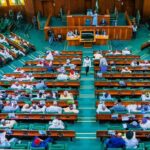Following allegations of infractions against some tertiary institutions in Nigeria regarding the disbursement of the Nigerian Education Loan Fund (NELFUND), the management of the University of Jos has exonerated itself, describing the report linking the university to such allegations as false, misleading, and entirely unfounded.
In a statement signed by its Senior Deputy Registrar (Information and Publications), Abdullahi Abdullahi, the university asserted that all funds provided to it by NELFUND were properly credited to the approved beneficiaries.
The university clarified that its NELFUND Desk Office had put in place a dedicated mechanism to ensure that all NELFUND-related matters are handled appropriately and expeditiously.
The statement noted that the NELFUND Desk Officer at the University of Jos, Mr. Daniel Yakmut, confirmed the institution’s strict adherence to all laid-down procedures since the inception of the NELFUND initiative. He added that the school charges structure submitted to NELFUND was accurate and not inflated, contrary to the claims made in the unsubstantiated media report.
ALSO READ:JAMB: Reps to probe poor performance of 2025 UTME candidates
The university further highlighted that Mr. Yakmut, who is also the university’s Director of Information and Communications Technology (ICT), stated that had the author of the contentious article sought clarification, the institution would have provided detailed explanations regarding the school charges, beneficiaries’ data, and the disbursement process.
According to the university, Mr. Yakmut debunked the unproven claims that the University of Jos surcharged NELFUND beneficiaries beyond the approved fee structure and diverted the excess funds into the university’s account.
He further disclosed that for the 2023/2024 academic session, out of 10,617 students who applied for the loan scheme, only 6,988 met all NELFUND requirements and have benefitted from the disbursement.
Mr. Yakmut was quoted as saying:
“When NELFUND began, we uploaded the required student data alongside a comprehensive fee schedule. This schedule detailed fees for each level, faculty, and department, as structured by NELFUND’s Student Verification Portal. For the 2023/2024 academic session, the approved fees varied between science and non-science programs due to laboratory and studio charges. We charged ₦165,000 (inclusive of ₦25,000 laboratory fees) for 100-level science-based programs and ₦140,000 for non-science programs without lab or studio components.
“Students with lab, studio, or workshop components were charged ₦135,000, while those without such components paid ₦110,000. For students in 300-level and above, those with lab/studio/workshop paid ₦130,000, and those without paid ₦105,000. Notably, some Arts and Social Sciences programs, like Fine Arts, also attract lab/studio/workshop fees.”
The university explained that the main source of confusion arose from the timing of the NELFUND disbursement relative to the university’s academic calendar. Approximately 95% of the beneficiaries had already paid their school fees before the loans were credited to the university.
On the issue of refunds, Mr. Yakmut clarified that the credited balances remain in the students’ accounts and will be applied to their fees for the next academic session.
“If your school fees next session are ₦130,000 and you have a ₦30,000 credit, you’ll only need to pay ₦100,000. The money hasn’t disappeared; it’s simply being rolled over,” Yakmut explained.
He emphasized that while the university has issued an advisory on the matter, no final decision has been made regarding potential refunds or the modalities for implementing such refunds.
WATCH TOP VIDEOS FROM NIGERIAN TRIBUNE TV
- Relationship Hangout: Public vs Private Proposals – Which Truly Wins in Love?
- “No” Is a Complete Sentence: Why You Should Stop Feeling Guilty
- Relationship Hangout: Friendship Talk 2025 – How to Be a Good Friend & Big Questions on Friendship
- Police Overpower Armed Robbers in Ibadan After Fierce Struggle






